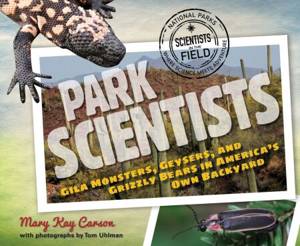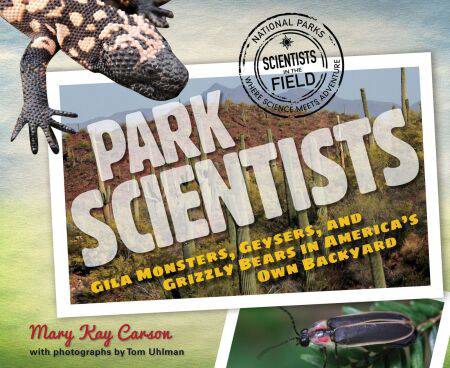
- Afhalen na 1 uur in een winkel met voorraad
- In januari gratis thuislevering in België
- Ruim aanbod met 7 miljoen producten
- Afhalen na 1 uur in een winkel met voorraad
- In januari gratis thuislevering in België
- Ruim aanbod met 7 miljoen producten
Park Scientists E-BOOK
Gila Monsters, Geysers, and Grizzly Bears in America's Own Backyard
Mary Kay CarsonOmschrijving
America's National Parks are protected places and have become living museums for as many as 270 million visitors per year! In addition, researchers are able to perform long term studies of a wide number of subjects from salamanders the size of thumbnails to gigantic geothermal geysers. These parks are natural laboratories for scientists. Did you know that Yellowstone National Park in Wyoming sits on top of an active (and very large) volcano? This volcano is monitored and studied on a daily basis, not only as a means of protection (though it seems a long way off from erupting) but also as a way of understanding how the environment changes and influences what goes on deep underground.
The scientists profiled in The Park Scientists also study grizzly bears in Yellowstone, the majestic Sagauro catci in Arizona, and fireflies in Tennessee -- and suggest many ways for the average reader of any age to help out. The emphasis here is twofold: the great science that happens everyday in these important, protected spaces, and the fact that you can visit all of them and participate in the research.
It's backyard science at its biggest and best in this resourceful addition to the Scientists in the Field series!
Specificaties
Betrokkenen
- Auteur(s):
- Uitgeverij:
Inhoud
- Aantal bladzijden:
- 80
- Taal:
- Engels
- Reeks:
Eigenschappen
- Productcode (EAN):
- 9780544302518
- Verschijningsdatum:
- 12/05/2014
- Uitvoering:
- E-book
- Beveiligd met:
- Adobe DRM
- Formaat:
- ePub

Alleen bij Standaard Boekhandel
Beoordelingen
We publiceren alleen reviews die voldoen aan de voorwaarden voor reviews. Bekijk onze voorwaarden voor reviews.









